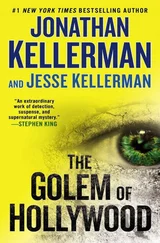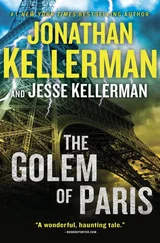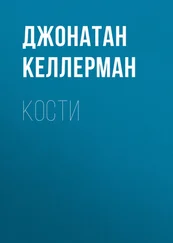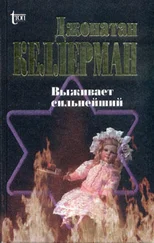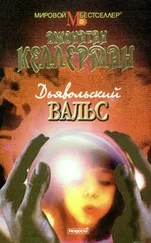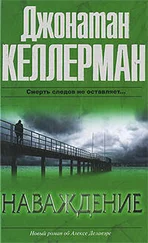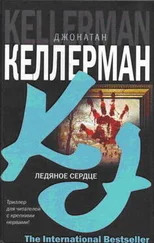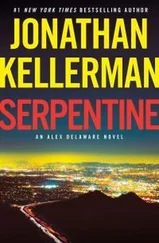“Too busy to help find the murderer of your best friend?”
The head shot up. She brushed furiously at a loose strand of hair.
“Please leave,” she said between clenched jaws. “I have work to do.”
“Yes, I know. You don’t even eat lunch with the rest of the teachers. You’re very dedicated and serious – that’s what it took to get out of the barrio – and that puts you above the laws of common courtesy.”
She stood up, all five feet of her. For a moment I thought she was going to slap me, as she drew her hand back. But she stopped herself, and stared.
I could feel the acid heat coming my way but I held my gaze. Jaroslav would have been proud.
“I’m busy,” she finally said, but there was a pleading quality to the statement, as if she was trying to convince herself.
“I don’t want to take you on a cruise. I just want to ask a few questions about Elena.”
She sat down.
“What kind of psychologist are you? You don’t talk like one.”
I gave her a capsulized, deliberately vague history of my involvement in the case. She listened and I thought I saw her soften.
“A child psychologist. We could use you around here.”
I looked around the classroom, counted forty-six desks in a space meant for twenty-eight.
“I don’t know what I could do – help you tie them down?”
She laughed, then realized what she was doing and cut it off, like a bad connection.
“It’s no use talking about Elena,” she said. “She only got into trouble because of being involved with that…” She trailed off.
“I know Handler was a creep. Detective Sturgis – the big guy – knows. And you’re probably right. She was an innocent victim. But let’s make sure, okay?”
“You do this a lot? Work for the police?” She evaded me.
“No. I’m retired.”
She looked at me with disbelief. “At your age?”
“Post-burnout.”
That hit home. She dropped her mask a notch and a bit of humanity peeked through.
“I wish I could afford it. Retirement.”
“I know what you mean. It must be crazy working with this kind of bureaucracy.” I threw out the lure of empathy – administrators were the object of every teacher’s ire. If she didn’t go for it I wasn’t sure what I’d do to gain rapport.
She looked at me suspiciously, searching for a sign that I was patronizing her.
“You don’t work at all?” she asked.
“I do some free-lance investing. It keeps me busy enough.”
We chatted for a while about the vagaries of the school system. She carefully avoided mention of anything personal, keeping it all in the realm of pop sociology – how rotten things were when parents weren’t willing to get emotionally and intellectually involved with their children, how difficult it was to teach when half the kids came from broken homes and were so upset they could barely concentrate, the frustration of dealing with administrators who’d given up on life and stuck around only for their pensions, anger at the fact that a teacher’s starting salary was less than that of a trash collector. She was twenty-nine and she’d lost any shred of idealism that had survived the transition from East L.A. to the world of Anglo bourgeoisie.
She could really talk when she got going, the dark eyes flashing, the hands gesticulating – flying through the air like two brown sparrows.
I sat like the teacher’s pet and listened, giving her what everyone wants when they’re unloading – empathy, an understanding gesture. Part of it was calculated – I wanted to break through to her in order to find out more about Elena Gutierrez – but some of it was my old therapeutic persona, thoroughly genuine.
I was starting to think I’d gotten through when the bell rang. She became a teacher again, the arbiter of right and wrong.
“You must go now. The children will be coming back.”
I stood up and leaned on her desk.
“Can we talk later? About Elena?”
She hesitated, biting her lip. The sound of a stampede began as a faint rumble and grew thunderous. High-pitched voices wailed their way closer.
“All right. I’m off at two-thirty.”
An offer to buy her a drink would have been a mistake. Keep it businesslike, Alex.
“Thank you. I’ll meet you at the gate.”
“No. Meet me in the teachers’ parking lot. At the south side of the building.” Away from prying eyes.
Her car was a dusty white Vega. She walked toward it carrying a stack of books and papers that reached up to her chin.
“Can I help you?”
She gave me the load, which must have weighed at least twenty pounds, and took a minute to find her keys. I noticed that she’d put on makeup-eye shadow that accentuated the depth of her orbs. She looked around eighteen.
“I haven’t eaten yet,” she said. It was less an angling for an invitation than a complaint.
“No brown bag?”
“I threw it out. I make a lousy lunch. On a day like today it’s too lousy to take. There’s a chop house on Wilshire.”
“Can I drive you?”
She looked at the Vega.
“Sure, why not? I’m low on gas, anyway. Toss those on the front seat.” I put the books down and she locked the car. “But I’ll pay for my own lunch.”
We left the school grounds. I led her to the Seville. When she saw it her eyebrows rose.
“You must be a good investor.”
“I get lucky from time to time.”
She sank back in the soft leather and let out a breath. I got behind the wheel and started up the engine.
“I’ve changed my mind,” she said. “You pay for the lunch.”
She ate meticulously, cutting her steak into tiny pieces, spearing each morsel individually and slipping it into her mouth, and wiping her mouth with her napkin every third bite. I was willing to bet she was a tough grader.
“She was my best friend,” she said, putting down her fork and picking up her water glass. “We grew up together in East L.A. Rafael and Andy – her brothers – played with Miguel.” At the mention of her dead brother her eyes misted then grew hard as obsidian. She pushed her plate away. She’d eaten a quarter of her food. “When we moved to Echo Park the Gutierrezes moved with us. The boys were always getting into trouble – minor mischief, pranks. Elena and I were good girls. Goody-goodies, actually. The nuns loved us.” She smiled.
“We were as close as sisters. And like sisters there was a lot of competition between us. She was always better-looking.”
She read the doubt in my face.
“Really. I was a scrawny kid. I developed late. Elena was voluptuous, soft. The boys followed her around with their tongues hanging out. Even when she was eleven and twelve. Here.” She reached into her purse and took out a snapshot. More photographic memories.
“This is Elena and me. In high school.”
Two girls leaned against a graffiti-filled wall. They wore Catholic school uniforms – short-sleeved white blouses, gray skirts, white socks and saddle shoes. One was tiny, thin and dark. The other a head taller, had curves the uniform couldn’t conceal and a complexion that was surprisingly fair.
“Was she a blonde?”
“Surprising, isn’t it? Some German rapist way back, no doubt. Later she lightened it even more, to be really all-American. She got sophisticated, changed her name to Elaine, spent lots of money on clothes, her car.” She realized she was criticizing the dead girl and quickly changed her tune. “But she was a person of substance underneath all of that. She was a truly gifted teacher – there aren’t many like that. She taught EH, you know.”
Educationally Handicapped classes were for children who weren’t retarded but still had difficulties learning. The category could include everything from bright kids with specific perceptual problems to youngsters whose emotional conflicts got in the way of their learning to read and write. Teaching EH was tough. It could be constant frustration or a stimulating challenge, depending on a teacher’s motivation, energy and talent.
Читать дальше



